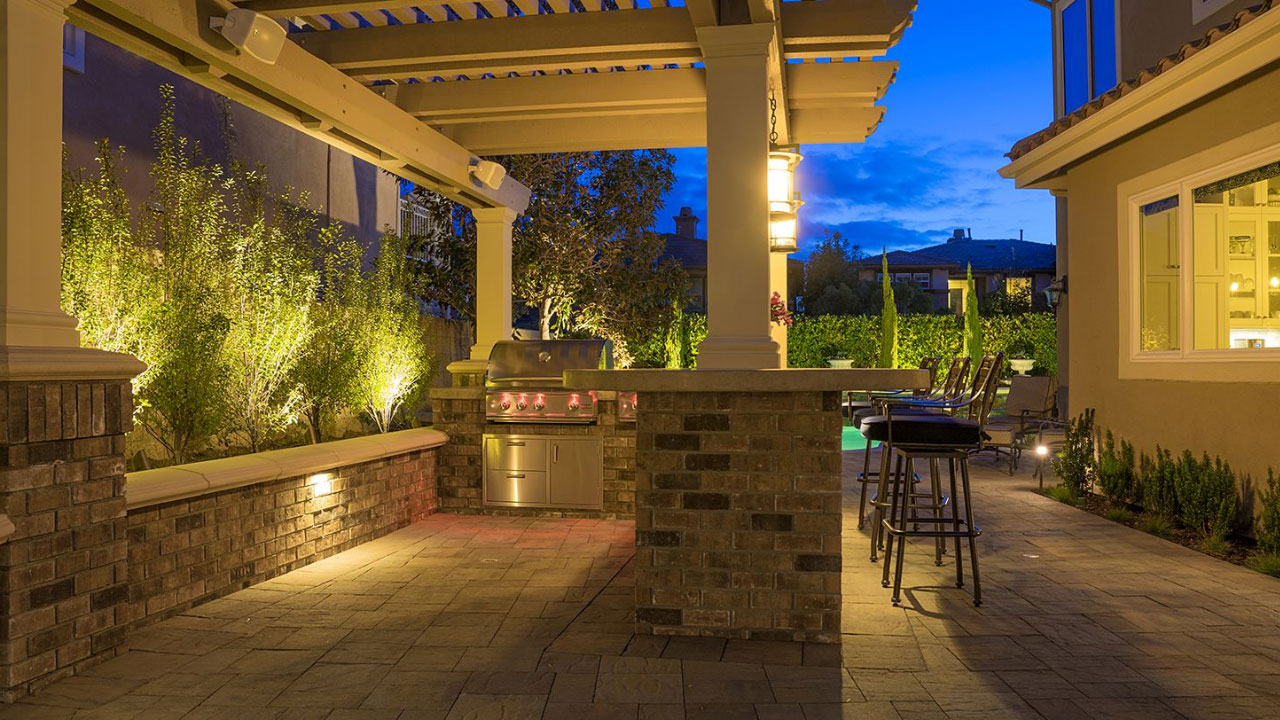Key Takeaways:
- WoodWood is a natural, organic material derived from trees, commonly used in landscaping and constructio..., aluminum, vinyl, steelSteel is a strong, durable alloy made primarily of iron and carbon, commonly used in construction an..., fabric, and composite are some of the best materials for patio coversPatio covers are structures built over patios to provide shade, protection from the elements, and en....
- Consider climate, maintenance effort, budget, style, and how you'll use the space.
- Add retractable canopies, hanging plants, lighting, climbing vines, or curtains.
- Weigh the pros and cons of materials against your needs. Consult professionals for expert advice.
- Enhance beauty, boost home value, and create an enjoyable outdoor space.
Choosing the right materials for your patio cover is crucial to ensure it meets your needs for durability, aesthetics, and maintenance.
With so many options available, it can be challenging to decide which material is best for your outdoor space.
This guide will help you understand the pros and cons of the most popular materials for patio covers and give you some pergola ideas to enhance your backyard.
Wood Patio Covers
Wood is a classic choice for patio covers and pergolas, offering a natural and timeless look that complements many architectural styles.
Pros:
- Aesthetic Appeal: Wood provides a warm, natural look that enhances the beauty of your outdoor space.
- Versatility: Can be painted or stained in various colors to match your home and personal style.
- Customizable: Easily cut and shaped to create intricate designs and pergola ideas.
Cons:
- Maintenance: Requires regular maintenance, including painting, staining, and sealing to prevent rot and insect damage.
- Durability: Susceptible to weathering, especially in areas with high humidity or extreme weather conditions.
- Cost: High-quality wood can be expensive, and ongoing maintenance adds to the overall cost.
Aluminum Patio Covers
Aluminum is a popular choice for patio covers due to its durability and low maintenance.
Pros:
- Durability: Resistant to rust, corrosion, and weather damage, making it ideal for various climates.
- Low Maintenance: Requires minimal upkeep compared to wood.
- Lightweight: Easier to install and manipulate during construction.
Cons:
- Aesthetics: May not provide the same warm, natural look as wood.
- Heat Retention: Can become hot in direct sunlight, making it less comfortable during peak summer months.
- Customization: Limited design options compared to wood.
Vinyl Patio Covers
Vinyl is an affordable and low-maintenance option for patio covers.
Pros:
- Low Maintenance: Resistant to rot, insects, and weather damage, requiring minimal upkeep.
- Cost-Effective: Generally more affordable than wood and aluminum.
- Easy to Clean: Can be cleaned with soap and water, making it easy to maintain its appearance.
Cons:
- Durability: May not be as durable as other materials in extreme weather conditions.
- Aesthetics: Limited color and design options, and it can look less natural than wood or aluminum.
- Strength: Not as strong as other materials, which can limit the size and scope of your pergola ideas.
Steel Patio Covers
Steel offers a robust and long-lasting option for patio covers.
Pros:
- Strength: Extremely strong and durable, capable of supporting larger structures.
- Longevity: Resistant to weathering, pests, and rot.
- Modern Look: Provides a sleek, modern appearance that complements contemporary homes.
Cons:
- Maintenance: Can rust if not properly treated and maintained.
- Weight: Heavier than other materials, which can make installation more challenging and expensive.
- Cost: Higher upfront cost compared to other materials.
Fabric Patio Covers
Fabric is a versatile option for temporary or adjustable patio covers.
Pros:
- Flexibility: Can be easily installed, removed, or adjusted to suit your needs.
- Cost-Effective: Generally more affordable than permanent structures.
- Variety: Available in various colors, patterns, and styles to match your pergola ideas.
Cons:
- Durability: Less durable than permanent materials, and may need to be replaced more frequently.
- Maintenance: Can be susceptible to mold, mildew, and fading.
- Weather Resistance: This may not provide adequate protection in extreme weather conditions.
Composite Patio Covers
Composite materials combine the best features of wood and plastic, offering a durable and low-maintenance option for patio covers.
Pros:
- Durability: Resistant to rot, insects, and weather damage.
- Low Maintenance: Requires minimal upkeep, retaining its appearance for many years.
- Aesthetic Appeal: Available in a variety of colors and finishes that mimic the look of wood.
Cons:
- Cost: Higher upfront cost compared to vinyl and some other materials.
- Heat Retention: Can become hot in direct sunlight, similar to aluminum.
- Weight: Heavier than vinyl, making installation more labor-intensive.
Factors to Consider When Choosing Materials
When deciding on the best material for your patio cover, consider the following factors:
- Climate: Choose materials that can withstand your local weather conditions.
- Maintenance: Consider how much time and effort you’re willing to invest in maintaining your patio cover.
- Budget: Factor in both initial costs and long-term maintenance expenses.
- Aesthetic: Select materials that complement the style of your home and landscape.
- Purpose: Think about how you plan to use the space and choose materials that meet your functional needs.
Innovative Pergola Ideas for Your Patio Cover
These creative touches can transform a simple pergola into a stunning focal point for your outdoor space.
To add a touch of elegance and functionality to your patio cover, consider incorporating these pergola ideas:
- Retractable Canopies: These provide flexible shade options, allowing you to enjoy the sun or stay cool as needed.
- Hanging Plants: Add a natural element by suspending planters from the pergola beams for a lush, green look.
- Integrated Lighting: String lights or built-in fixtures can create a warm, inviting ambiance for evening gatherings.
- Climbing Vines: Plant climbing vines like wisteria or jasmine to weave through the pergola, providing shade and fragrance.
- Decorative Curtains: Add flowing curtains to your pergola for a touch of privacy and elegance.
Whether you’re looking to add shade, greenery, or ambiance, these pergola ideas can enhance the beauty and functionality of your patio cover.
Make the Right Choice for Your Home
Choosing the right material and design for your patio cover is a significant decision that can impact the aesthetics and usability of your outdoor space.
By understanding the pros and cons of each material and considering your specific needs and preferences, you can create a beautiful and functional patio that enhances your home’s value and appeal.
- Consult with Experts: For the best results, it’s wise to consult with professional designers or contractors. They can provide insights and recommendations tailored to your specific situation and help bring your vision to life.
- Final Thoughts: Investing in a high-quality patio cover not only improves the look of your home but also increases its market value. With the right choice of materials and design, your patio cover will be a cherished addition to your outdoor living space for years to come.
Ready to Upgrade Your Patio Cover?
Whether you're leaning towards the natural beauty of wood, the durability of aluminum, or the low maintenance of vinyl, making the right choice ensures long-term satisfaction with your investment.
Contact West Hills Masonry today at 714-519-5009 to schedule a consultation. Our experts can help you explore the pros and cons of each material, guiding you toward the perfect patio cover that matches your style, budget, and functional needs.
Transform your outdoor area into a stylish and functional retreat with our expertise in hardscapingHardscaping refers to the non-living elements of landscaping, such as stone, brick, concrete, wood, ... and patio covers. Let's create a patio cover that enhances your home's beauty and functionality—call us today!

 Carlos Gonzales
Carlos Gonzales